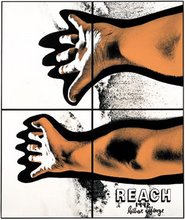Worse than you would ever know. I do not agree at all with this article. Anyone who's every studied the Amish or Fundamentalist Mormons can see a serious difference in the function of these two cultures and, consequently, their right to protection by the First Amendment.
The Amish refusal to pay Social Security taxes is balanced by the fact that they, as a group, refuse to accept such governmental aid in the first place. If they are religiously opposed to participating in the tax in any way, then why should they be forced into the system? In contrast, for every $1 Arizona's Fundamentalist Mormons pay in taxes, they receive $8 in government aid--a practice known as "bleeding the beast." Here is a religion that views all non-members as heathenous others who do not deserve their respect or consideration, a far cry from the Amish adherence to the Golden Rule.
Furthermore, Fundamentalist Mormons believe that polygamy is the key to creating Heaven's kingdom on Earth. According to a tract written in 1842 titled The Peace Maker, monogamy is responsible for a litany of crimes such as divorce, adultery, domestic violence, premarital sex, and abortion. Plural marriage, and more importantly the wives' complete and total subservience to her husband's will, is the absolute law of God and will restore order to our corrupt modern society. Girls are brainwashed from birth that their soul purpose on Earth is to marry and produce as many children as possible to serve their husband. As soon as girls hit puberty, they are married off. As they are taught from birth that their obedience is God's will, how can they refuse?
There is an extreme difference in the refusal of the Amish to pay Social Security or allow their children to take high school science versus the rampant statutory rape and domestic violence of the Mormon Fundamentalist community. Considering that taxpayers are financing the fundamentalist' violent life style, how can law enforcement in good conscious ignore and, therefore, tacitly condone this way of life? The First Amendment protects religious practice but it does not sanction violence against others. Reynolds v. United States refused to protect polygamy because "to permit this would be to make the professed doctrines of religious belief superior to the law of the land, and in effect to permit every citizen to become a law unto himself." Unfortunately, this doctrine is not being upheld as it should be.
[All discussion of Mormon Fundamentalism taken from Under the Banner of Heaven by Jon Krakauer]



